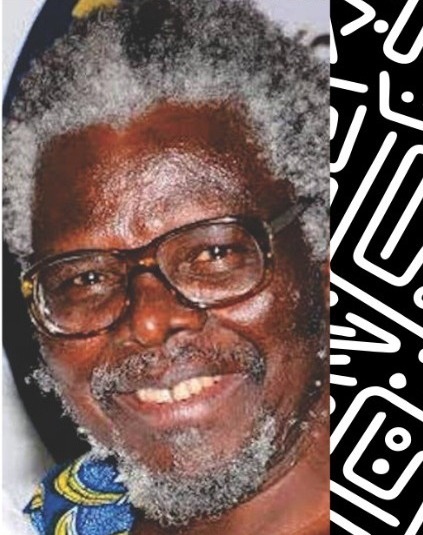It would be difficult to know how Left activists would answer the question of what the overarching significance or the question as to what exactly is at stake in ‘Eddie @ 75’. It is sure to be a confounding mélange of answers. Yet, the question must be posed because a meaningful action such as ‘Eddie @ 75’ cannot be assessed outside of what Kofi Awoonor has called the ‘Cathedral of doom’. In a crude sense, the novelist must have meant the complicated gown that colonialism made for African countries; which they can neither wear nor do without.
In the age of effusive outpouring even in the Left circle, it would be surprising if there would be many striking signification of Eddie Madunagu even in that hub. Yes, he breathes socialism or Left activism but in which sense of such a wide domain. The Left project could become occasional celebrations without any take away if each of such an occasion does not answer the question of significance. This report makes an attempt, beginning with the key contention that Eddie Madunagu’s most important contribution to Left politics is the presence of mind to seize and utilise a major platform of popular culture such as The Guardian to articulate his standpoint.
Again, most Left activists would certainly object to this conclusion, preferring to privilege praxis though very unlikely for any other reasons beyond the ridiculing of popular culture by some leading Frankfurt scholars. Or, the indisposition to the ‘linguistic turn’ as opposed to the materialist interpretation of history.

Discursive framing of socialism in terms of one with Chinese characteristics
Of course, the ‘linguistic turn’ comes with the poser as to whether the tree that fell in the forest which no one witnessed is real. This is Alex Callinicos’s criticism of Discourse theory, especially as applied in Deconstruction or the ‘linguistic turn’, if you like. It is a very surprising attack on the turn, coming from him. It is surprising because it is a criticism even scholars of lesser standing in social theory would not make. Certainly, not after Ernesto Laclau and Chantal Mouffe had clarified that the idea of dichotomy between idealism and materialism as a weakness of discourse analysis is a mistaken notion. The popular quotation from their book to that effect comes like this: ‘the fact that every object is constituted as an object of discourse has nothing to do with whether there is a world external to thought, or with the realism/idealism opposition …. What is denied is not that … objects exist externally to thought, but the rather different assertion that they could constitute themselves as objects outside of any discursive condition of emergence”. That is, to the extent that there is nothing that is not mediated by language, it is language-in-use that defines reality and hence, the primacy of discourse and the ‘discursive condition of emergence’
If nothing makes sense outside of its ‘discursive condition of emergence’, then the tree that fell in the forest without any witnesses did not fall. This is to the extent that the fall will have no significance. It is only when people start talking about why a particular tree or trees might be falling that a policy action would arise. If the consensus emerges that trees are falling because the ancestors are angry or because of one impact of climate change or the other, then questions of how to appease the ancestors or develop climate change mitigation policies would arise. This would never be possible if no one witnessed the falling of a particular tree or trees in the forest. In other words, there is no reality without “discursive condition of emergence”.
This is why Eddie Madunagu’s significance can be located or reduced to his iterative warfare on the pages of The Guardian over the years. In those articles, he sought to impose what would be broadly argued to be Left view of the issues he treated. Although his views were open to interpretation or millions of meaning by the diverse readership of that platform, they stood the chance of emerging the consensus in certain known and unknown spaces of reasoning and action. The implication is that Eddie Madunagu could have been enacting Socialism or the Left outlook far beyond his or anyone’s imagination over the years.
No other form of Left or socialist politics could have enabled him or any other activist that magnitude of timeless contribution because even if he, along with some others, had successfully organised a Jacobinist takeover of power, they would still have had to consolidate that power by building consent in the larger society. To fail to do so is to court a repeat of the excesses of what used to be referred to as ‘actually existing socialism’. ‘Actually existing socialism’ fell below the emancipatory essence in the Marxist imagination, misled as it were by the big contradiction of Rationalism which produced Marxism. As no theory can sustain practices over and above its methodology, Marxism soon became a science which could rationalise the most dehumanizing practices of power that no Marxist could ever support. The rest is now history but in a way that should draw attention of the Left establishment in Nigeria or what is left of it to the dangers of instrumental reasoning that inheres in Rationalist thinking. The ‘establishment’ can do that by taking ‘discursive condition of emergence’ more seriously, that being the praxis in which Eddie Madunagu’s significance lies.
It does not mean that everyone must then start writing a column in a newspaper. No. What it means is recognising the constitutive force of iteration in the struggle for hegemony, both as advanced by Gramsci but as now developed in the idea of articulatory politics. Of course, the theory of articulatory politics has come under fire as well. One particular critic wondered what manner of politics could be which prioritises articulation over and above what is to be articulated. Brilliant as that seems, it ignores the grand contention, for instance, that “the extra-ordinary reach of popular culture is key to construction of identity at the scale of today’s meganations such as the United States and China”. And popular culture is the key outlet for articulatory politics in the age of bewildering diversity and diffusion.
It is in the foregone that ‘Eddie Madunagu @ 75” would derive its essence in the discursive power loaded into “Notes on the ‘Rule of Law’”; “Notes on Indecent Dressing’”; “Stories and Lessons”; “Lessons From Recent Events”; “‘Better Late Than Never’”; “In Praise of Jimmy Carter”; “Reviews and Projections”; “Political Power and Yar’Adua’s Illness”; “Notes on Farouk Mutallab”; “Notes on the ‘Doctrine of Necessity’”; “A Dialogue With Student Priests”; “Nigerian History Through ASUU”; “Clarifications and Elaborations”; “Again, in Defence of History”; “Stories from African Elections”; “Reviews and Responses”; “Further Notes on Zoning”; “Wahab Dosumu’s ‘Alternatives’”; “Projections and Imperatives”; “Perspectives on ‘Power Distribution’”; “Humanism and Its Enemies”; “Revisiting ‘Libya and the New Imperialism’”; “History, Optimism and Rededication”;
These are random takings from readily available titles of his columns. Taking more could be risking monotony for someone who has maintained a weekly column for decades. Only a convenient pick as above makes sense in terms of plausible issues or areas where each of these outings could have created an impact unknown to even Madunagu or anybody else, given the differential reading of them at different levels outside of the author’s intention.




























